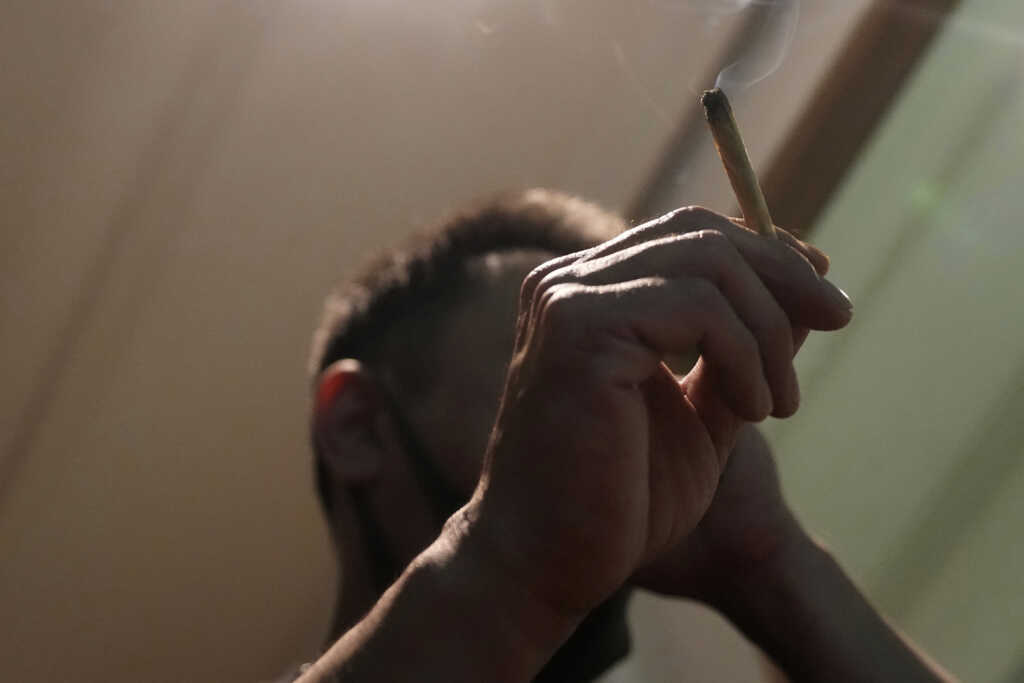A Texas doctor who has spent years researching the effects of marijuana is sounding the alarm about culture’s mainstreaming of the drug, warning its effects are anything but benign.
Dr. Raymond Wiggins, an oral surgeon and author of “Weeding Out the Lies About Marijuana,” told CBN Digital marijuana is a drug that can have profound psychological and physical effects on the body.
“If you want to talk about psychosis, for those who start using marijuana at a young age and who use it on a regular basis, there’s a two and a half times risk of psychosis,” Wiggins said. “One study … actually showed a six times risk for those who used it regularly.”
He said research also shows young people who use the drug before age 18 are also at increased risk of psychosis, though the dangers don’t stop there.
“If you’re talking about depression and suicide, depression is greatly increased if you start smoking … it as a teenager,” Wiggins said. “And then, if you look at the statistics for depression, up until the age of 30, those who smoked it as a teenager are 37% more likely to be depressed in their young adult years, and even later on in life.”
Watch Wiggins explain the dangers of marijuana:
With depression and mental health dominating conversations of late, Wiggins finds the normalization of marijuana usage disturbing.
The doctor also mentioned suicide as yet another factor worthy of exploring, stating research shows young people who use the drug are “50% more likely to think about suicide” and are “three and a half to seven times more likely to attempt suicide.”
Bipolar disorder is yet another issue Wiggins raised, with the doctor highlighting a recent study he said found a causal relationship between bipolar disorder and marijuana.
“Marijuana actually causes bipolar disorder,” he said. “And the statistics are just incredible on that … and anyone who uses marijuana will have an increased risk of bipolar disorder, according to this study.”
A May report from U.S. News and World Report highlighted some of the research Wiggins cited.
“The analysis of more than 6.6 million Danish individuals found that having cannabis use disorder doubled or even tripled the odds for most forms of depression or bipolar disorder,” the outlet reported. “When it came to bipolar disorder in particular, ‘cannabis use disorder was associated with higher risk for psychotic than non-psychotic subtypes of bipolar disorder,’ the researchers noted.”
As for Wiggins’ own motivation for exploring marijuana use and addiction, the doctor pointed to experiences in his own family as well as patterns he’s seen among his patients for igniting his passion to explore further the impact weed has on the masses.
Listen to the latest episode of CBN’s Quick Start podcast 👇
“I have three close relatives who were all heavy marijuana users and they’re all dead today,” he said. “I believe that they would be alive if it wasn’t for marijuana.”
On the professional front, Wiggins said his patients who use marijuana tend to have a “lot more anxiety.”
“Almost every one of them that checks the box that says ‘marijuana,’ they also check ‘anxiety,'” he said. “It’s been interesting to me that people would push it as an anti-anxiety drug when studies actually show that it increases anxiety.”
Wiggins said patients who use marijuana generally require three times the normal Propofol for anesthesia before medical procedures to sedate them appropriately.
“Plus … it takes more post-operative pain medication to keep them comfortable,” he said.
Wiggins took his personal and professional experiences into account and said he was motivated to properly explore the size and scope of America’s marijuana problem.
“When I started looking at all those things, I saw the devastating effects in my patients, my family, and my friends,” he said. “I began investigating, and what I found really shocked me.”
As CBN News reported last year, British journal The Lancet published a 2022 research paper warning THC, a chemical in marijuana products, can create both dependence and psychosis.
“Overall, use of higher potency cannabis, relative to lower potency cannabis, was associated with an increased risk of psychosis and cannabis use disorder,” the paper stated. “Evidence varied for depression and anxiety.”
Read more about that study here.
Wiggins’ warnings come as the Biden administration’s Department of Health and Human Services (HHS) is recommending the Drug Enforcement Administration (DEA) move cannabis from Schedule I to Schedule III, thus loosening restrictions on the drug, Politico reported.
Moving it to this lower-risk tier under the Controlled Substances Act, under which there are five schedules (Schedule I, where marijuana is now, is the most restrictive), would reportedly mean less stringent restrictions on the drug.
In the end, the DEA would make the final decision after HHS’s recommendation.
Reclassifying could have sweeping repercussions, including inching the drug toward national legalization. Either way, it could be used more frequently in medical treatment, among other factors.
The Ethics and Religious Liberty Commission of the Southern Baptist Convention recently released its own assessment of the proposal, expressing concern such a DEA change would “bring significant harm to our communities.”
***As the number of voices facing big-tech censorship continues to grow, please sign up for Faithwire’s daily newsletter and download the CBN News app, developed by our parent company, to stay up-to-date with the latest news from a distinctly Christian perspective.***



